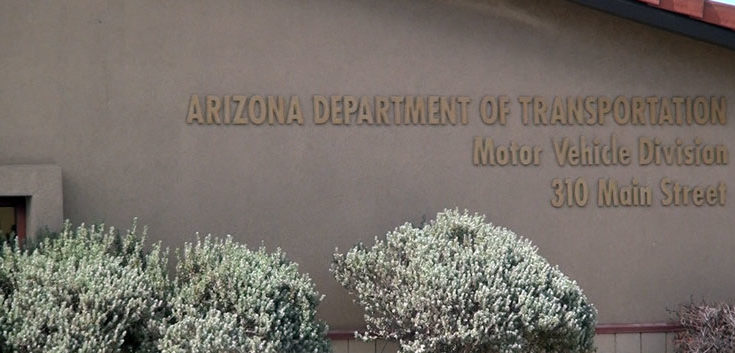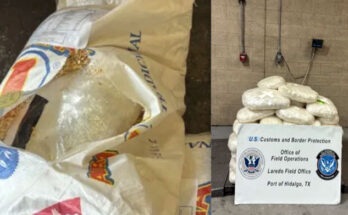Fraudsters are trying to get your personal information and money
Contributed Article/Courtesy ADOT and U.S. Customs and Border Protection
PHOENIX – That isn’t the Arizona Department of Transportation pinging your phone to demand payment for “an outstanding traffic ticket.”
Some Arizonans are understandably contacting ADOT about a scam text that begins with the phrase “Arizona Department of Transportation Final Enforcement Notice.” It promises all manner of bad things should you fail to act quickly. The threats include suspending your vehicle registration and driving privileges, harming your credit, and possibly hitting you with prosecution.
It’s yet another spam scam trying to get your personal information and money. Be cautious when clicking on links in this or any other suspicious text, as the goal is to steal your personal information and money. You should delete the text and rest easy.
For the record: ADOT is not involved in collecting for unpaid traffic tickets. We will not text you seeking payment for anything. One obvious tell in this text is its use of “DMV” when, in fact, ADOT has an “MVD,” short for Motor Vehicle Division.
As was the case in recent months with scam texts alleging unpaid tolls, this is another version of what the Federal Bureau of Investigation refers to as “smishing.” That’s a social engineering attack in which cybercriminals try to trick people into sending money by stoking fear and demanding urgent action. Look closely, and you’ll notice that this text, like many other scam texts, originates from another country.
The Federal Trade Commission has tips here for identifying and dealing with spam text messages.
Scammers pretend to be Border Patrol as well
Telephone scammers continue to target residents nationwide to gain personal information that would bypass financial security protocols.
Anyone receiving any type of call from someone claiming to be from U.S. Customs and Border Protection and seeking any type of personal information should just hang up.
U.S. Customs and Border Protection employees continue to receive numerous calls from people concerned about unsolicited calls from scammers posing as U.S. Border Patrol agents and U.S. Customs and Border Protection officers.
“If CBP suspects illegal activity, we will not call a suspect or a victim requesting money or Social Security numbers. To be clear, CBP will not make telephone calls threatening citizens that law enforcement is on the way or promising money for information,” said CBP Houston Acting Director of Field Operations Rod Hudson. “Anyone receiving a call from U.S. Customs and Border Protection about self-deportation, or a shipment of drugs or money, should recognize that it is a scam, regardless of how authentic the caller may sound.”
In many cases, would-be victims are reporting that the scammers are insistent that they must confirm certain details because CBP has intercepted a shipment of drugs with the “target’s” name and address, and that cooperation is important to ensure the case is resolved. If the target refuses to comply, the scammer threatens that the police will arrive. When the scammer is asked for a name, he provides an actual CBP employee’s name and phone number available on the internet for the target to verify. Some scammers are even providing fake case numbers and badge numbers.
A variation of this call is a pre-recorded message stating that a “shipment of drugs or money with your name on it has been intercepted.” The target is then instructed to press #1 to speak with a CBP officer/agent. When connected, the scammer then attempts to confirm the target’s banking information.
These calls, whether a pre-recorded message or a live person, are phone scams/phishing attempts, and residents are urged not to provide the caller with any information. The Department of Homeland Security and CBP do not solicit money over the phone.
If you get a call like this, here are a few things to keep in mind:
- CBP won’t call you out of the blue with promises of money or threats. Is the caller asking you to pay a fee or share your Social Security, credit card, or bank account numbers over the phone? Hang up. It’s a scam.
- CBP never uses gift cards, cryptocurrency, or wire transfers. If someone asks you to pay this way, it’s a scam. Always.
- Don’t trust caller ID. Scammers can make their phone numbers look real even if they’re not.
- Check with CBP if you’re unsure about whether a call or email is real. Never call back phone numbers in the caller ID, or leave voicemails, emails, or social media messages. Instead, type the agency name into a search bar and click on their webpage to find contact information.
Anyone receiving any type of call from someone claiming to be from U.S. Customs and Border Protection and seeking any type of personal information should just hang up. Phone scams can be reported to the Federal Trade Commission online.










